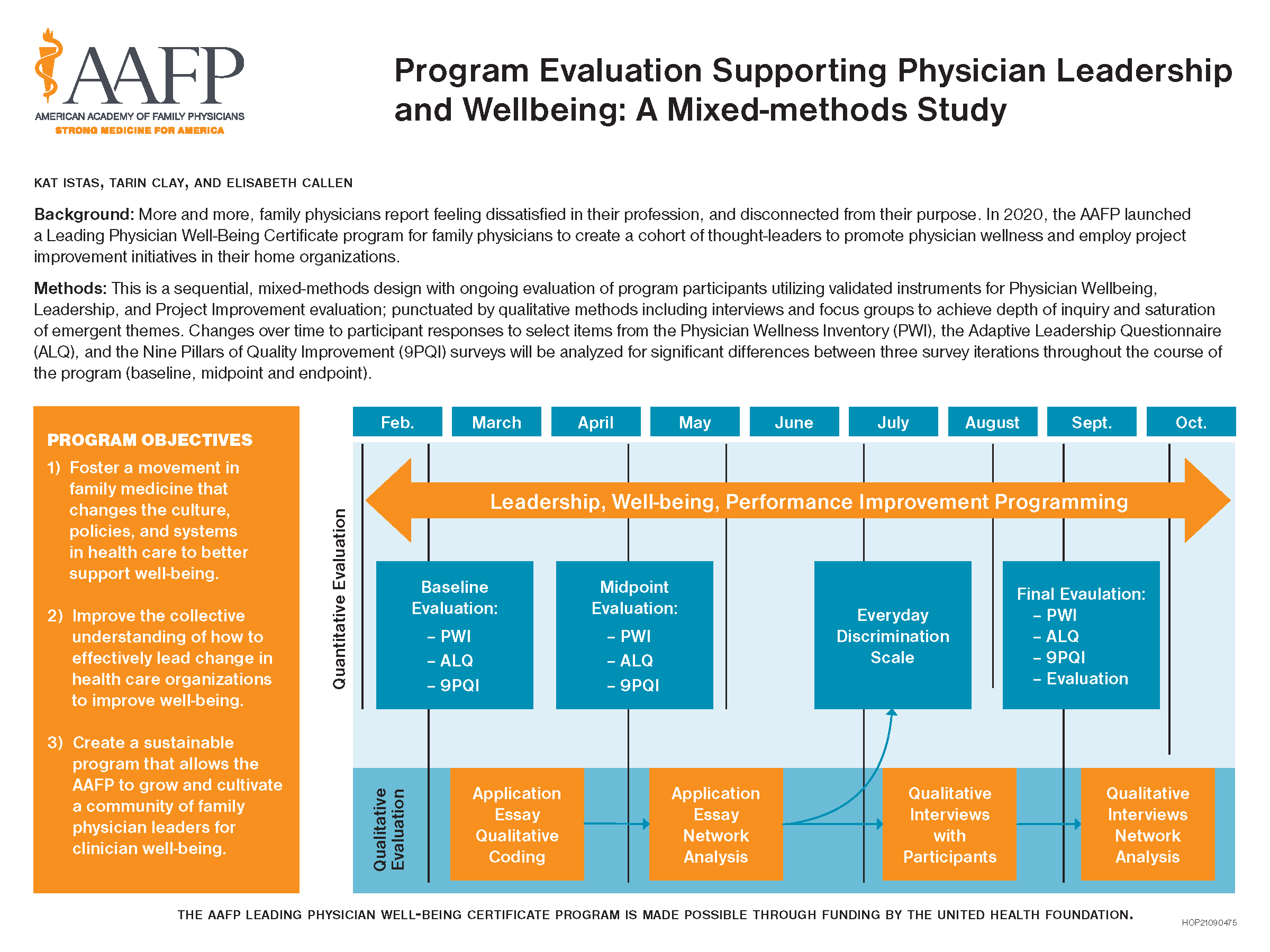PRP066: Program Evaluation Supporting Physician Leadership and Wellbeing: A Mixed-methods Study
Kathryn Istas, MPH; Elisabeth Callen, PhD; Tarin Clay, BA
Abstract
Context: More and more, family physicians report feeling dissatisfied in their profession, and disconnected from their purpose. In 2020, the AAFP launched a Leading Physician Well-Being Certificate program for family physicians to create a cohort of thought-leaders to promote physician wellness and employ project improvement initiatives in their home organizations. Objective: This study seeks to evaluate adherence to Leading Physician Wellness goals and assess learner outcomes in terms of the three primary objectives of the program: (1) Foster a movement in family medicine that changes the culture, policies, and systems in health care to better support well-being, (2) Improve the collective understanding of how to effectively lead change in health care organizations to improve well-being. (3) Create a sustainable program that allows the AAFP to grow and cultivate a community of family physicians leaders for clinician well-being. Study Design: Sequential mixed methods with ongoing evaluation of program participants utilizing validated instruments for Physician Wellbeing, Leadership, and Project Improvement evaluation; punctuated by qualitative methods including interviews and focus groups to achieve depth of inquiry and saturation of emergent themes. Setting or Data Set: The Evaluation Team is situated in the Division of Research, Science, and Health of the Public at AAFP. Data collection occurs in a virtual setting across multiple platforms including Qualtrics, Microsoft Forms, and Juno. Population Studied: Criteria for inclusion in this study includes participation in the Leading Physician Well-Being Certificate Program, or participation as program faculty or staff. 102 program participants and between 5-10 staff and faculty are included in the results. Outcome Measures: Changes over time to participant responses to select items from the Physician Wellness Inventory, the Adaptive Leadership Questionnaire, and the Nine Pillars of Quality Improvement surveys will be analyzed for significant differences between three survey iterations throughout the course of the program. Results: This is an ongoing study. Expected results will describe statistically significant changes in survey results over time which will indicate learner outcomes towards the program objectives. Qualitative results including network analyses will demonstrate key findings resulting from focus groups and interviews to evaluate program objectives.

Diane Harper
harperdi@med.umich.edu 11/21/2021It is wonderful to see AAFP presenting their research at NAPCRG! Welcome home! Great work!